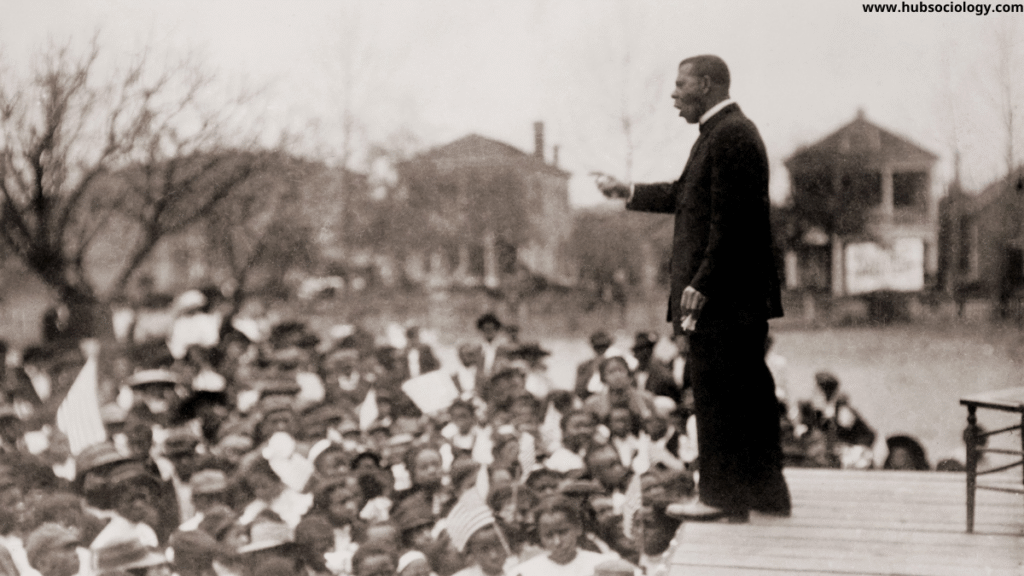Introduction on Power and Authority
In the study of sociology, few thinkers have had as enduring an influence as Max Weber. As one of the founding figures of modern social science, Weber sought to understand the dynamics of society through the lens of social action, culture, economy, and politics. Among his many theoretical contributions, his analysis of power (Macht) and authority (Herrschaft) stands as a cornerstone for understanding the functioning of social and political life. Weber’s distinction between power and authority not only shaped political sociology but also offered a framework to analyze how social order is maintained, how leaders legitimize their rule, and how individuals respond to systems of domination.
This article explores Weber’s concept of power and authority, their types, and their sociological implications, highlighting how his theories remain relevant in understanding modern institutions and governance.

Power: The Ability to Enforce One’s Will
According to Weber, power (Macht) is the likelihood that one actor in a social connection will be able to do what they want in spite of opposition from others. In other words, power is the ability of individuals or groups to impose their preferences on others, regardless of consent.
From a sociological perspective, Weber’s definition emphasizes that power is relational and contextual—it exists within social interactions rather than in isolation. For example, a police officer has power in upholding law and order, whereas a teacher has authority in the classroom. Power may be based on physical force, economic resources, knowledge, or even psychological influence.
However, Weber was careful to note that raw power, based solely on coercion or force, tends to be unstable. Individuals subjected to sheer power may resist, rebel, or undermine the authority of the one exerting control. This realization led Weber to develop his nuanced theory of authority, which explains how power becomes legitimized and sustained within societies.
Authority: Legitimate Power
Authority, according to Weber, is power that is regarded as legitimate by those who are subject to it. Unlike naked power, authority relies on acceptance and recognition. People obey not merely because they fear consequences but because they believe the authority to be rightful, just, or natural.
This distinction between power and authority is crucial in sociology. Authority explains why citizens obey laws, why employees follow their managers, and why societies accept political leaders. It provides the foundation for stable social order and institutional governance.
Weber classified authority into three ideal types, each based on a different principle of legitimacy: traditional authority, charismatic authority, and legal-rational authority.
Traditional Authority
Traditional authority is rooted in long-established customs, practices, and cultural patterns. It is legitimized by the sanctity of age-old traditions and the belief that the existing order has always existed and should continue.
Examples include monarchies, feudal systems, and hereditary leadership. A king or tribal chief is obeyed not because of personal charisma or written law but because of tradition. Subjects believe in the legitimacy of such authority since it aligns with cultural heritage and historical continuity.
Sociologically, traditional authority often supports conservative social structures, reinforcing hierarchy and stability. However, it can also hinder innovation and adaptation, since its legitimacy rests on preserving the past.
Charismatic Authority
Charismatic authority results from a leader’s exceptional personal attributes. Weber defines charisma as a type of devotion sparked by a person’s extraordinary holiness, bravery, or admirable nature. Charismatic leaders command obedience because followers believe in their vision, mission, or supernatural gifts.
Examples include religious prophets like Jesus or Muhammad, political revolutionaries like Mahatma Gandhi or Nelson Mandela, and even modern celebrities who exert immense influence over their admirers. Charisma often emerges during times of crisis, when people yearn for direction and hope.
The sociological significance of charismatic authority lies in its ability to inspire radical change. Unlike traditional authority, which preserves continuity, charisma disrupts the status quo and creates new social movements. However, charismatic authority is inherently unstable—once the leader dies or loses credibility, the authority can collapse unless institutionalized into tradition or law.
Legal-Rational Authority
Legal-rational authority is based on impersonal rules, laws, and bureaucratic procedures. Here, legitimacy derives from established legal codes and rationally designed systems rather than tradition or personal charisma. People follow the law because they believe it to be legitimate, not because they are loyal to it.

Examples include modern democratic governments, corporate structures, and bureaucratic institutions. In these systems, power is vested in offices rather than individuals: a president, judge, or manager is respected because of their official position, not their personality or heritage.
For Weber, legal-rational authority is the hallmark of modernity. It ensures predictability, efficiency, and stability through bureaucracy. Yet, it also risks creating what Weber famously called the “iron cage”—a system where rationalization and rules dominate human freedom and creativity.
The Interplay of Power and Authority
Weber’s analysis shows that power and authority are not mutually exclusive but interdependent. Authority transforms power into legitimacy, allowing it to persist without constant coercion. At the same time, authority can erode into mere power if legitimacy is questioned.
For instance, a democratic government derives authority from the consent of the governed. However, if corruption, injustice, or inefficiency undermines this legitimacy, citizens may perceive its actions as mere power, leading to protest or rebellion. Similarly, a charismatic leader may initially inspire voluntary obedience, but if institutionalized into bureaucracy, authority transitions into a more stable form.
This interplay highlights a key sociological insight: social order is maintained not simply through coercion but through legitimacy and belief systems.
Weber’s Relevance in Contemporary Society
Weber’s ideas on power and authority continue to shape sociological research, political theory, and governance today. Some key contemporary applications include:
- Political Legitimacy – Modern states must balance legal-rational authority with public trust. Elections, constitutions, and rule of law provide legitimacy, but charismatic leaders still play a critical role in shaping public opinion.
- Social Movements – Charismatic authority remains central in activism. Leaders like Martin Luther King Jr. or Greta Thunberg demonstrate how charisma mobilizes masses for social change.
- Bureaucracy and Governance – Legal-rational authority defines modern bureaucracies, from civil services to multinational corporations. Yet, debates around excessive bureaucracy echo Weber’s warning of the “iron cage.”
- Cultural Persistence – Traditional authority persists in religious institutions, monarchies, and even family structures, showing that modernization does not entirely eliminate traditional legitimacy.
- Crisis of Legitimacy – In times of political instability, when citizens lose faith in institutions, authority weakens and societies revert to struggles for power, demonstrating the fragile balance between legitimacy and coercion.
Criticisms of Weber’s Theory on Power and Authority
While Weber’s framework is foundational, it has faced critiques:
- Overemphasis on Legitimacy – Some argue Weber underestimates the role of coercion and economic inequality in sustaining authority.
- Ideal Types Limitation – His threefold typology oversimplifies reality, where mixed forms of authority coexist. For example, modern states often blend legal-rational and charismatic legitimacy.
- Eurocentrism – Critics suggest his framework is too rooted in Western historical experience, making it less applicable to non-Western contexts.
Despite these critiques, Weber’s conceptual clarity remains unmatched in political sociology.
Conclusion on Power and Authority
Max Weber’s distinction between power and authority offers a profound lens through which to analyze social order, leadership, and governance. Power, as the ability to enforce one’s will, becomes stable only when transformed into authority—legitimate power accepted by the governed. Through his classification of authority into traditional, charismatic, and legal-rational forms, Weber illuminated the dynamics of continuity, change, and rationalization in society.

In the contemporary world, from democratic politics to corporate management, Weber’s insights remain indispensable. They remind us that institutions and leaders survive not merely by force but by legitimacy, and that the stability of social systems depends as much on belief and consent as on rules and coercion. Ultimately, Weber’s sociological perspective continues to help us understand the enduring question: Why do people obey?
Do you like this this Article ? You Can follow as on :-
Facebook – https://www.facebook.com/hubsociology
Whatsapp Channel – https://whatsapp.com/channel/0029Vb6D8vGKWEKpJpu5QP0O
Gmail – hubsociology@gmail.com
Exam-style questions
5 Marks Questions on Power and Authority (Short Answer)
- Define Max Weber’s concept of power.
- How does Weber distinguish between power and authority?
- List the three types of authority as identified by Weber.
- Give one example each of traditional authority and charismatic authority.
- What did Weber mean by the “iron cage” in relation to legal-rational authority?
10 Marks Questions on Power and Authority (Medium Answer)
- Discuss Weber’s definition of authority and explain why it is considered legitimate power.
- Explain the features of traditional authority with suitable sociological examples.
- Discuss the role of charisma in social change, according to Weber.
- Critically examine the strengths and weaknesses of legal-rational authority.
- Explain the interrelationship between power and authority in Weber’s sociology.
15 Marks Questions on Power and Authority (Long Answer/Essay Type)
- Evaluate Max Weber’s typology of authority (traditional, charismatic, legal-rational) and discuss its sociological significance.
- How does Weber’s concept of authority help in understanding the stability of modern political systems? Illustrate with examples.
- Discuss the relevance of Weber’s theory of power and authority in contemporary society.
- Critically analyze Weber’s distinction between power and authority in relation to modern bureaucracies.
- Examine the role of legitimacy in Weber’s theory of authority. How does legitimacy differentiate authority from mere coercion?

2 thoughts on “Max Weber: Power and Authority in Sociological Perspective”